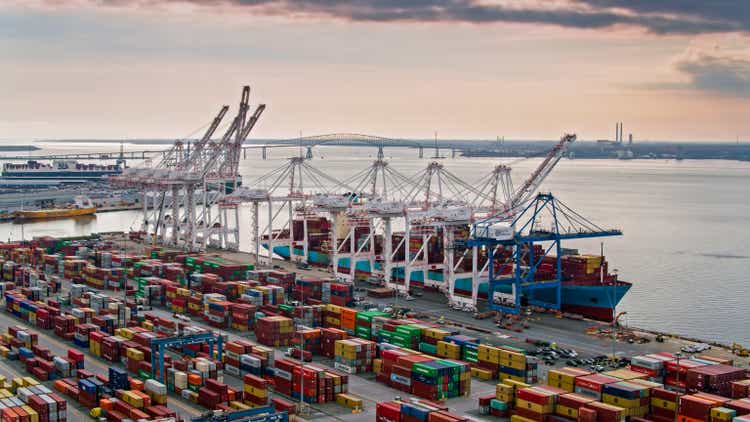
halbergman
The strike at East Coast ports could be over by Monday as the Longshoremen’s Association and the U.S. Maritime Alliance have reportedly come to an agreement regarding the automation issue, according to a phone call between Cowen analyst Jason Seidl and sources close to the two parties.
With the more contentious automation issue resolved, the union and organization representing ports and shipping companies now need to hammer out a deal on increased wages, which could be resolved more quickly, Seidl wrote in a note on Thursday.
A quick resolution to the crippling strike will mitigate the potential backlogs across the affected east coast ports, as Oxford Economics warns each week cargo is stalled could result in a backlog of a month. Big box retailers are already reporting hoarding behavior by consumers, reminiscent of the pandemic.
“Any strike that goes on for more than a week would create much larger challenges and would be very disruptive to the overall supply chain,” Seidl wrote in the note.
JPMorgan analyst Brian Ossenbeck has said he would be surprised if an East Coast port strike lasted longer than a week. However, the firm warned that in the best worst-case scenario, consumers could face higher prices or empty shelves for certain products.
The Conference Board, a business think tank, said early this week that a weeklong strike could cost the U.S. economy $3.78 billion, or $540 million per day, and the leading products to be affected include electronics and automobiles.
The strike will also interrupt the import of critical cargo like oil, prescription drugs, electronics, vehicles and auto parts, as well as machine parts used for manufacturing. With the east coast the main hub for shipments from Europe, India, Africa, and the Middle East, a protracted strike could have a significant impact on the U.S. economy.
